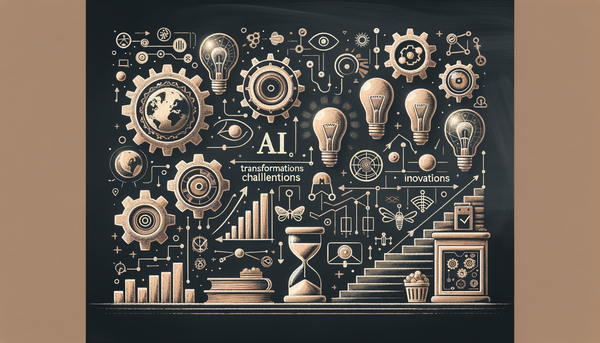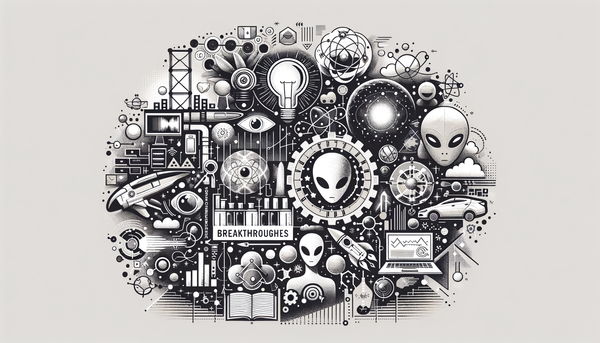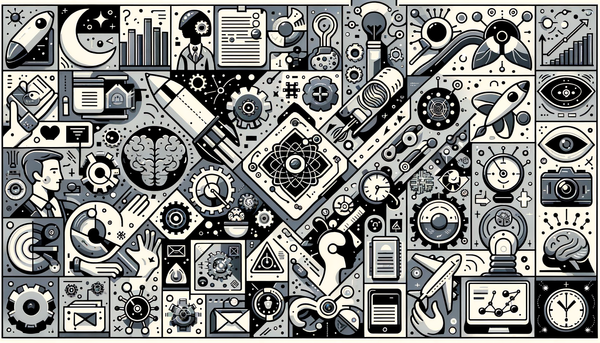Stripe’s 38% Leap in Payment Volume Thanks to AI
The increasing convergence of AI technologies into various aspects of business life is reshaping industries—from enhancing culinary experiences and boosting enterprise applications to transforming payment processing and redefining night vision technology. Each development offers a unique glimpse into the potentialities and challenges posed by artificial intelligence in our contemporary world.
Culinary Arts Meet Artificial Intelligence
In the heart of Lafayette, Louisiana, a unique culinary adventure unfolds as the tradition of crawfish boiling is reimagined through the lens of artificial intelligence. This delightful intersection of culture and technology highlights AI's quirky culinary flair, revealing not just a method for boiling mudbugs but also injecting a touch of humor into the ritual. The AI's input on seasoning and technique offered both valuable insights and a picture of how artificial intelligence can be applied to traditionally human-centered activities, trading stories along a communal table, as is common in a full Louisiana experience.
"Everything that has a beginning has an end." – The Oracle, The Matrix Revolutions
The struggle of AI in perfectly capturing this cultural essence is a testament to its current limitations—but also its potential. As AI technologies continue to evolve, their ability to immerse themselves into cultural nuances will likely become more refined.
AI-Enhanced Payment Processing
Companies like Stripe are pioneering the integration of AI to revolutionize financial transactions, boasting a 38% surge in payment volume due to strategic investments in artificial intelligence and machine learning. By positioning themselves at this crossroads, the company not only boosts revenue streams but also enhances fraud detection mechanisms using AI-enabled reputation networks. This transformation signals a new era in payment processing fueled by AI.
The integration of stablecoins further underscores Stripe's commitment to facilitating seamless and cost-effective transactions. As businesses worldwide look to technology for solutions, Stripe showcases how the judicious application of AI-driven insights can provide significant returns while navigating the increasingly digital monetary ecosystem.
Enterprise Applications: The Role of AI
AI's application extends into enterprise functionalities with startups like Workhelix leading the charge. By meticulously dissecting job roles and aligning AI capabilities with enterprise needs, Workhelix ensures that businesses embrace AI without succumbing to the prevalent hype. It's a strategic boon for enterprises, providing them the precision needed to align AI with roles that truly benefit from it.
Such targeted AI application drives real value and offers enterprises the "trillion-dollar opportunity" as mentioned by the masterminds behind Workhelix. Their approach advocates for a blend of human and machine capabilities that can redefine operational benchmarks, further explored in our in-depth look at Workhelix's impact.
Challenges of AI: The Unlearning Conundrum
As we've uncovered in various discussions, including the comprehensive insights from Forbes, AI faces its own struggles, particularly in the realm of unlearning. This is a critical aspect as businesses deal with data deletion and privacy rights. The technical complexities involved in stripping an AI model of learned patterns are daunting, raising ethical and legal challenges across industries.
Companies are urged to invest in data governance and stay attuned to emerging unlearning technologies to maintain ethical AI deployments. The intricacies of unlearning, and its potential consequences, continue to spur conversations on the need for robust frameworks guiding AI's evolution.
Dispelling Darkness: AI in Night Vision Technology
Among the transformative innovations in AI, Deepnight's night vision software stands tall. By harnessing AI to revolutionize digital imaging, this startup is drastically cutting costs and expanding capabilities within the multi-billion dollar night vision industry. The transition from costly analog equipment to AI-powered smartphone-based solutions is poised to disrupt traditional paradigms—not just in military contexts but across automotive and security sectors as well.
Therein lies a tale of possibility—demonstrating how AI can bridge the gap between dated equipment and modern solutions, ensuring that "everything in the world can see in the dark," as remarked by Deepnight's visionary founders.




